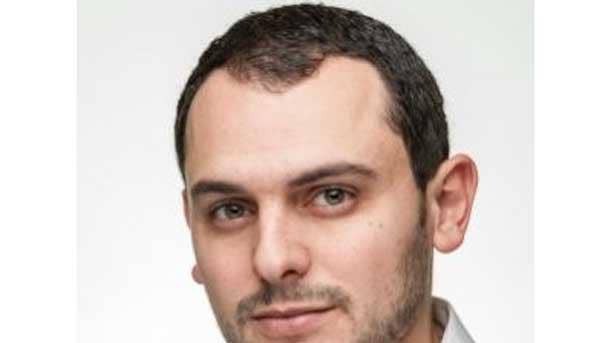The 10 Hottest Cloud Computing Startups Of 2020
Cloud computing startups picking up traction this year offer solutions ranging from Apache Airflow as a service to a life sciences R&D cloud software platform, and include a newly emerged security company formed by former ‘white hat’ hackers.

With the coronavirus pandemic further fueling the growth of cloud computing, startups working in the space have an opportunity to accelerate adoption of their cloud services.
Worldwide public cloud spending by end-user businesses and organizations is expected to grow 18 percent next year to $304.9 billion, up from $257.5 billion this year, according to research and advisory firm Gartner, leaving plenty of room for cloud startups to grab some market share.
As the United States enters what’s expected to be an economic recovery period in 2021, cloud is expected to continue to be a foundational area of the technology food chain, according to Wedbush Securities analyst Daniel Ives.
“The fundamental growth drivers for tech remain robust…especially around cloud and cyber security names, as more enterprises and governments accelerate their applications/data workloads to a cloud-driven environment, which has been markedly accelerated in this COVID backdrop,” Ives said in a Nov. 15 report.
See the latest entry: The 10 Coolest Cloud Computing Startup Companies of 2022
Here’s a look at 10 cloud computing startups to watch.

Amperity
CEO: Kabir Shahani
Headquarters: Seattle
Amperity’s enterprise customer data management platform leverages artificial intelligence and cloud scale to help companies gain control of their data and a 360-degree understanding of their customers. Companies already using Amperity include Alaska Airlines, Kroger, Lucky Brand, J.Crew, Planet Fitness, Kenneth Cole, Crocs and Stanley.
Amperity launched commercially in 2017. CEO Kabir Shahani and chief technology officer Derek Slager founded the company after selling Appature, a startup that offered cloud-based healthcare marketing software, to the former IMS Health in 2013. Amperity acquired Custora, a customer analytics platform for consumer brands, last November.

Astronomer
CEO: Joe Otto
Headquarters: Cincinnati
Astronomer helps organizations adopt Apache Airflow, the open-source data workflow orchestration platform that started as an internal Airbnb project in 2014 and allows users to programmatically author, schedule and monitor data pipelines in Python.
Astronomer Cloud is the company’s multi-tenant, multi-cloud Airflow-as-a-service offering allowing customers to spin up and scale Apache Airflow clusters without dealing with underlying infrastructure. It runs on a Kubernetes cluster hosted and managed by Astronomer. The self-hosted Astronomer Enterprise is a cloud-native, Kubernetes-based platform to deploy, manage and scale distributed Airflow services. It can run in any public cloud, private cloud or bare metal environment.
In May, Astronomer closed a $13.6 million Series A funding round led by Venrock, a Palo Alto, Calif., venture capital firm.

Benchling
CEO: Saji Wickramasekara
Headquarters: San Francisco
Benchling offers a unified life sciences research and development cloud software platform to centralize and standardize all R&D data. The platform is built for the complexity of large molecules. Users can model and interlink anything from sequences to cell lines to reagents, and model any experimental process as a digital, step-by-step workflow. They can create custom dashboards to track any R&D data, adjust Benchling without code and integrate any instrument or software to automate manual data tasks.
In May, Benchling closed a $50 million Series D funding round led by New York’s Alkeon Capital Management. At the time, CEO Saji Wickramasekara told Forbes that the investment brought Benchling’s total funding to $114 million and a valuation of $850 million.
Benchling’s customers are in industries ranging from pharmaceuticals and fuels to agriculture and food, and they include companies at the forefront of COVID-19 research, such as Gilead Sciences, Regeneron Pharmaceuticals and Mammoth Biosciences.

Coder
CEOs: Kyle Carberry and John Andrew Entwistle
Headquarters: Austin
Coder provides open-source tools and an enterprise platform designed to make it easier to configure, secure and manage software development environments, allowing engineers to work from anywhere and focus on writing code.
The startup’s Coder Enterprise platform moves software development to the cloud to centralize organizations’ development initiatives. It automates the manual processes for creating and configuring development environments. Developers can launch fully configured development environments from approved images in seconds, and users can securely access the environments through a browser from any location. All code and data sets remain secured in the infrastructure, and developers can use their preferred IDEs, tools and languages. Coder Enterprise runs on any public or private cloud platform and can be deployed on-premises within a virtual private cloud, including on air-gapped networks.
Coder also has a free open-source version of its platform. Its software has been pulled more than 23 million times from Docker and received over 36,000 stars on GitHub, according to the company.
Started in 2017, Coder raised $4.5 million in seed funding when cofounders Entwistle and Carberry were just 20 and 21 years old, respectively, and cofounder and chief technology officer Ammar Bandukwala was 19. The company has raised $43 million, including a $30 million Series B round led by Menlo, Calif.-based GGV Capital in April, with participation from Redpoint Ventures, Uncork Capital and In-Q-Tel, the Central Intelligence Agency’s venture funding arm. Coder offers itself as a DevSecOps solution for government software developers and counts the U.S. Air Force as a customer.

Ermetic
CEO: Shai Morag
Headquarters: Tel Aviv
Ermetic is a cloud identity and access governance company that helps enterprises protect IaaS and PaaS cloud infrastructures by governing identities and access entitlements and enforcing least privilege at scale.
Its cloud security platform provides full-stack visibility and control over multi-cloud infrastructure entitlements. Ermetic eliminates attack surface blind spots and allows organizations to enforce least privilege across their entire cloud infrastructure by analyzing identity and access management policies and the configuration of network, storage and secrets assets.
The company is led by co-founder and CEO Shai Morag, who was cofounder and CEO of Israel-based Secdo, an endpoint detection and response (EDR) vendor, when Palo Alto Networks acquired the company in 2018. Its other cofounders helped build enterprise security companies Aorato, which Microsoft acquired in 2014, and Sygnia, which Temasek, a Singapore investment company, purchased in 2018.
Ermetic emerged from stealth mode in May and announced it has closed a $17.25 million Series A funding round led by Palo, Alto, Calif., venture capital firm Accel and supported by its $10 million, seed-round investors.

Lightspin
CEO: Vladi Sandler
Headquarters: Tel Aviv
Cloud security company Lightspin, which focuses on contextual cloud security protecting native, Kubernetes and microservices from risks, emerged from stealth mode this week armed with a $4 million seed round.
Lightspin’s founders are former “white hat” hackers paid to break into the cloud infrastructures of some of the largest companies in the world. Understanding how attackers think is the startup’s “super power,” according to cofounder and CEO Vladi Sandler.
Lightspin’s technology allows organizations to preempt hackers by proactively mapping the full cloud stack in minutes to detect potential critical threats and avoid configuration vulnerabilities. The SaaS platform uses predictive, graph-based tools and algorithms to provide rapid, in-depth visualization of the cloud stack, analyze potential attack paths and detect the root causes.
Denver’s Ibex Investors led the seed round for Lightspin, whose staff – including research, development and engineering – is 50 percent female.

Privacera
CEO: Balaji Ganesan
Headquarters: Fremont, Calif.
The creators of Apache Ranger founded Privacera in 2016 to extend Ranger’s governance and security capabilities beyond traditional big data environments to cloud-native services and the leading analytics platforms of cloud providers Amazon Web Services, Microsoft Azure and Google Cloud Platform, and big data analytics platform developer Databricks.
The Privacera Platform is a centralized, enterprise data governance and security solution for machine learning and analytic workloads in public clouds. New features in the latest 4.0 version, released in October, include access workflows for faster on-boarding and customized data access, expanded discovery for seamless data tagging in complex infrastructures and an encryption gateway for automated encryption and decryption abilities.
In July, the company announced a $13.5 million Series A funding round to support its expansion and platform investments. Palo Alto, Calif.-based venture capital firm Accel led the round.

Privitar
CEO: Jason du Preez
Headquarters: London
The Privitar Data Privacy Platform natively integrates with Amazon Web Services, Microsoft Azure and Google Cloud Platform to protect and manage sensitive data while optimizing its utility for analytic applications. Organizations can automate data provisioning and enable cloud-scale analytics, machine learning, data science and other services to derive insights from even sensitive datasets.
HSBC, the London-based banking and financial services firm, joined Privitar’s Series C growth round with a $7 million investment in June, bringing the funding round total to $87 million. HSBC also became a shareholder after four years as a customer.
Privitar joined the AWS Partner Network’s Global Startups Program last December. This month, it announced it had earned Microsoft’s co-sell-ready designation through the Microsoft One Commercial Partner program and joined Microsoft’s FastTrack for Azure program as an independent software vendor.

Sensu
CEO: Caleb Hailey
Headquarters: Portland, Ore.
Sensu offers an observability pipeline for DevOps and site reliability engineering teams, delivering monitoring as code.
Sensu Go is its commercial software product designed for container-based and multi-cloud infrastructures and based on the open source project of the same name. The agent-based monitoring event pipeline allows users to collect, filter and transform monitoring events, and send them to a database of their choice. Sensu Go offers turn-key integrations for tools including Ansible Tower, Elasticsearch, PagerDuty, ServiceNow and Splunk.
Activision, Box.com and Sony are among the companies using Sensu.

WireWheel
CEO: Justin Antonipillai
Headquarters: Arlington, Va.
WireWheel is a data privacy management software provider. Its SaaS platform enables privacy programs to operate at scale, leveraging integrations into cloud infrastructure, on-premises and cloud data store environments.
The company helps support all phases of organizations’ privacy management programs, including collaboration and vendor risk management, and compliance with privacy regulations such as the European General Data Protection Regulation (GDPR), the California Consumer Privacy Act (CCPA) and the California Privacy Rights Act (CPRA).
Founded in late 2016, WireWheel was cited as a “strong performer” in the Forrester Wave for Privacy Management Software in March.